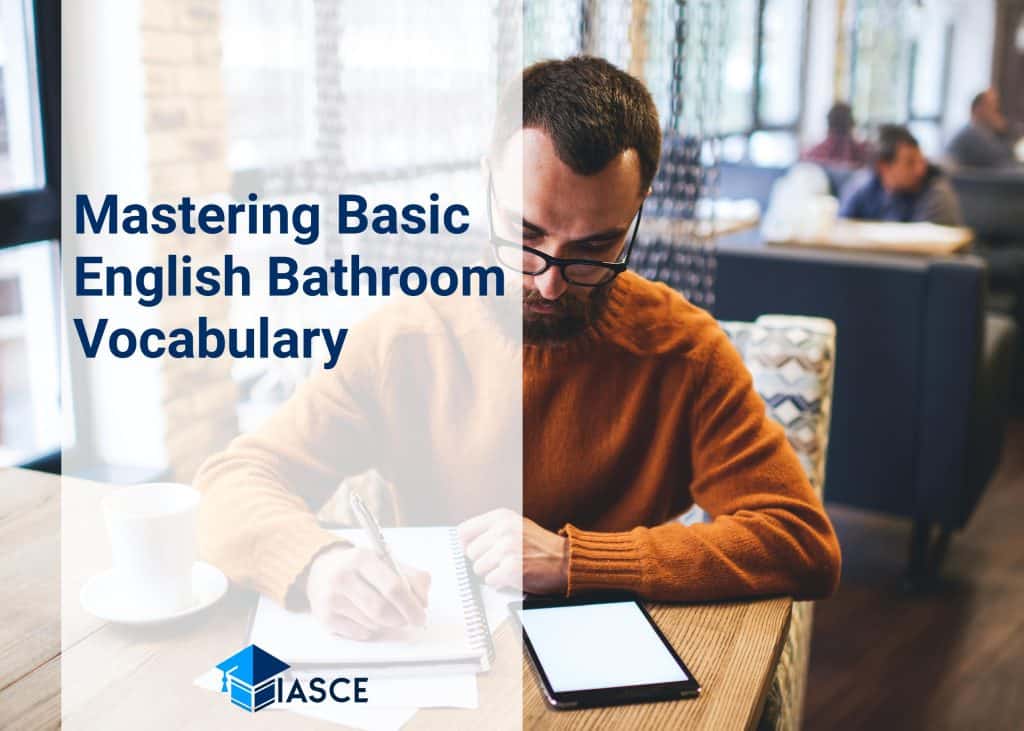Let’s face it, discussing bathrooms isn’t exactly a glamorous topic. But when you’re navigating a new culture or language, understanding the lingo can make all the difference. That’s why I’ve put together this comprehensive guide to English bathroom vocabulary.
You’ll find that familiarizing yourself with these terms not only helps in day-to-day conversations but also makes travel and living abroad less daunting. From essential fixtures like toilet and sink, to handy phrases for finding the restroom in a hurry, this guide has got you covered.
So buckle up! Whether you’re an English language learner, a traveler, or just someone looking to expand their vocabulary – get ready for an enlightening journey through the world of English bathroom vocabulary.
Understanding Bathroom Vocabulary: The Basics
Diving into bathroom vocabulary might seem like a plunge into the mundane, but it’s actually a fascinating journey. It offers us valuable insights into English language usage, cultural nuances, and even historical developments. To simplify this, I’ll break down some of the most common terms used in relation to bathrooms.
First off – what is a bathroom? In its simplest form, it’s a room containing at least one toilet. However, in American English specifically, ‘bathroom’ often refers to any room with bathing facilities—be it a bathtub or shower—even if there’s no toilet present!
Then there are words like restroom and washroom. These terms are often found in public places rather than homes and they’re pretty much interchangeable.
But let’s look at how these words can differ slightly:
|
Term |
Typical Usage |
|---|---|
|
Bathroom |
Commonly used for both private (in homes) and public places |
|
Restroom |
Mostly seen in commercial establishments |
|
Washroom |
Often preferred term in Canada |
Now let’s tackle some fixtures you’d find inside:
-
Toilet: This is primarily where human waste is disposed of.
-
Sink: Used for washing hands and sometimes other small items.
-
Bathtub: A large container where one can bathe sitting or lying down.
-
Shower: An area where one stands under running water to clean themselves.
And don’t forget about those all-important accessories! Towels for drying off after that refreshing shower or bathmat to prevent slipping on wet floors. There’s also the humble soap dispenser which plays an indispensable role in maintaining hygiene.
In all my years of studying language, I’ve come to realize that understanding these basic terms opens up doors not only to clear communication but also deeper cultural understanding – right from knowing when exactly someone means when they excuse themselves to use the ‘loo’ (a British term!)
I hope this dive into bathroom vocabulary has been enlightening!
Essential English Phrases for the Bathroom
Now we’re diving into the meat of the matter, focusing on essential English phrases for the bathroom. Whether you’re navigating a hotel in New York or a homestay in London, familiarity with these phrases can be your lifesaver.
A common phrase used primarily in North America is “Where is the restroom?” In British English, however, it’s more typical to hear “Where’s the loo?” or “Could I use your toilet?”
If you find yourself in need of specific items while occupying this space, there are several useful expressions. For instance:
-
“Could I have some toilet paper, please?”
-
“I seem to run out of soap here.”
-
And let’s not forget: “The sink seems to be clogged.”
Remembering these phrases isn’t just about practicality—it’s also about courtesy. As an example, if someone knocks on a locked bathroom door and asks if it’s occupied, responding with “Just a moment!” or “I’ll be right out!” conveys politeness and respect.
Here’s a quick cheat sheet of some essential terms:
|
American English |
British English |
|---|---|
|
Restroom |
Loo |
|
Faucet |
Tap |
|
Trash Can |
Bin |
In many ways, understanding this vocabulary is like unlocking a new level of cultural fluency. It won’t just help you when you’re traveling; it’ll also expand your conversational repertoire in any setting where English is spoken.
Finally — yes! — there are even idiomatic expressions related to bathrooms. Phrases like “spend a penny” (British) and “hit the john” (American) may sound odd at first but they are often used by native speakers referring to using the restroom.
There you have it: From asking directions to expressing needs and maintaining decorum — every phrase plays its part in making your experiences smoother. So next time when nature calls while you’re amidst an English-speaking crowd, rest assured that language won’t pose as an obstacle!
Conclusion: Enhancing Your English Through Bathroom Vocabulary
I’ve taken you on a journey through the world of English bathroom vocabulary, and I hope you’re leaving with a better understanding. Our voyage wasn’t just about learning new words; it was about enriching your English language skills.
By incorporating these terms into your daily life, you’ll find yourself navigating conversations more comfortably. You’ve got the tools to handle situations from ordering at a restaurant to discussing home renovations with ease.
Now, let’s remember some key points:
-
We’ve discussed everything from ‘faucet’ to ‘plunger’ – common items that everyone uses in their day-to-day lives.
-
We also dove into less common terms like ‘bidet’ and ‘sconce’. While not part of everyday conversation for most, knowing these words can set you apart when they do come up.
-
Lastly, we tackled confusing pairs like ‘bath’ vs. ‘shower’. Understanding these distinctions will make your communication clearer and more effective.
The beauty of language is that it’s always evolving. As such, keep exploring and expanding your vocabulary. Each new word is another step towards mastering the English language!
With this comprehensive guide at your fingertips, I’m confident that you’ll feel more comfortable using these bathroom-related terms in various contexts – be it casual conversation or formal writing.
Remember – practice makes perfect! So don’t shy away from using these new words and phrases in your everyday interactions. It’s all about enhancing your English through bathroom vocabulary!

